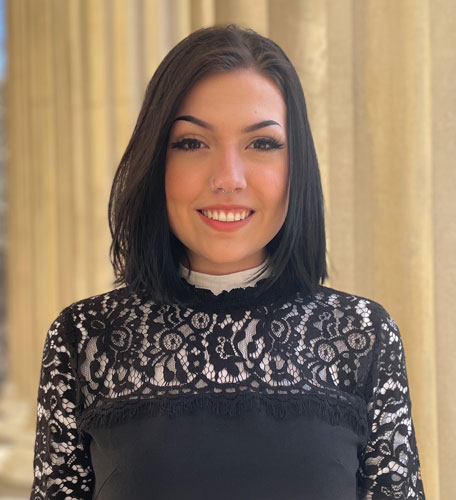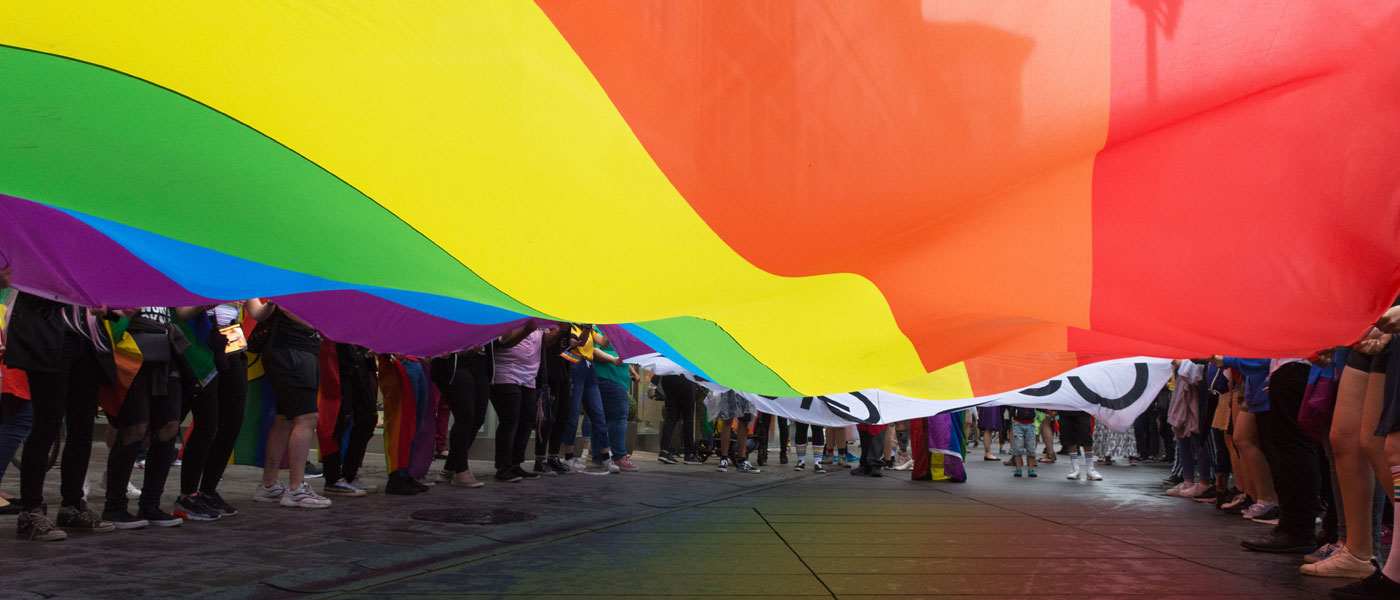From the rainbow flags of pride parades to vogue-style dance and ball culture‘s mark on the entertainment industry, the influence of lesbian, gay, bisexual, transgender and other queer-identifying (LGBTQ+) individuals is ever present across the global cultural landscape.
At Case Western Reserve University, the LGBT Center recognizes this influence year round. The center offers opportunities for the campus community to learn more about and celebrate the history, culture and contributions of the LGBTQ+ communities through a variety of social events, student-led programming and educational workshops. Yet, we may not always stop to recognize or appreciate the impact the LGBTQ+ community has on society.
In honor of LGBT History Month—held every October—The Daily spoke with LGBT Center student coordinators Axel Gawronski, Shannon Aber and Mckenna Uzelac who spoke about the importance of recognizing LGBTQ+ history.
Read on to hear their thoughts.
Answers have been edited for clarity and length.
Axel Gawronski
Within the center, Axel Gawronski—a fourth-year undergraduate student majoring in English and political science—connects LGBTQ+ members of the CWRU community to health, social and transition-related resources during campus events such as Sexpopalooza and Sex Fest. Gawronski is also involved with LGBT D&D, the Player’s Theater Group and Queer Media Group, a student-led group where community members discuss queer books, movies, tv shows, and other forms of media.
“One of the most important lessons that an education in LGBTQ+ history can teach someone is that members of every identity under the queer umbrella have always existed. The language used by many politicians and people in the public eye suggests that being transgender or nonbinary is a new thing, which has been used to invalidate people’s identities by suggesting it’s simply some sort of passing trend. But this couldn’t be further from the truth.
“A knowledge of this history validates the existence of queer individuals in the modern day, and allows people outside of the community to develop a more complete understanding of the ways our society conceives gender and sexuality.
“I also think that people don’t always realize the ways queer people have improved everyone’s lives through their activism. For example, the actions of ACT UP during the height of the AIDS epidemic led to changes in the U.S. healthcare industry by fighting for patients to be given a say in their own medical care, speeding up the testing process for AIDS treatments and making them more affordable. These changes have had a major impact on society as a whole, and the efforts of the activists who fought and died for them deserve to be recognized.”
Shannon Aber

A first-year social work student at the Jack, Joseph and Morton Mandel School of Applied Social Sciences, Shannon Aber helps lead discussions within the LGBT Center’s Bisexual and Pansexual Conversation Groups as a graduate assistant.
“I think it is important [now] more than ever to recognize LGBTQ+ history as we are facing an era of backlash against increasing affirmation and acceptance of LGBTQ+ identities. LGBT history is often overlooked from how we see or teach history at best, and at worst now being forcibly denied and erased.
“As a member of the LGBTQ+ community, it is essential to know my history, not only to remain connected to those who came before me, but to pass it onto younger generations. I think that LGBTQ+ history is a crucial part of history that all of us need to know, and the more people know about LGBTQ+ history, the more people can see themselves in history.”
McKenna Uzelac

McKenna Uzelac, a first-year Master of Social Work student in the Community Practice for Social Change pathway at the Mandel School, is a graduate assistant at the LGBT Center where she plans various events including the Graduate LGBT Mixer, Sex Fest, Student Drag Show and the upcoming Sapphic Social.
“It’s important to recognize LGBTQ+ history because, as a marginalized group, those in power wish to silence and erase us. Telling our stories and insisting on our history’s importance is therefore a form of active rebellion.
“Historically—and continually today—LGBTQ+ culture in terms of fashion, linguistics, music, performance and more have been the original source of trends that dominate ‘normal’ society. It is important to recognize and honor the people who first cultivated these cultural foundations and traditions.“

